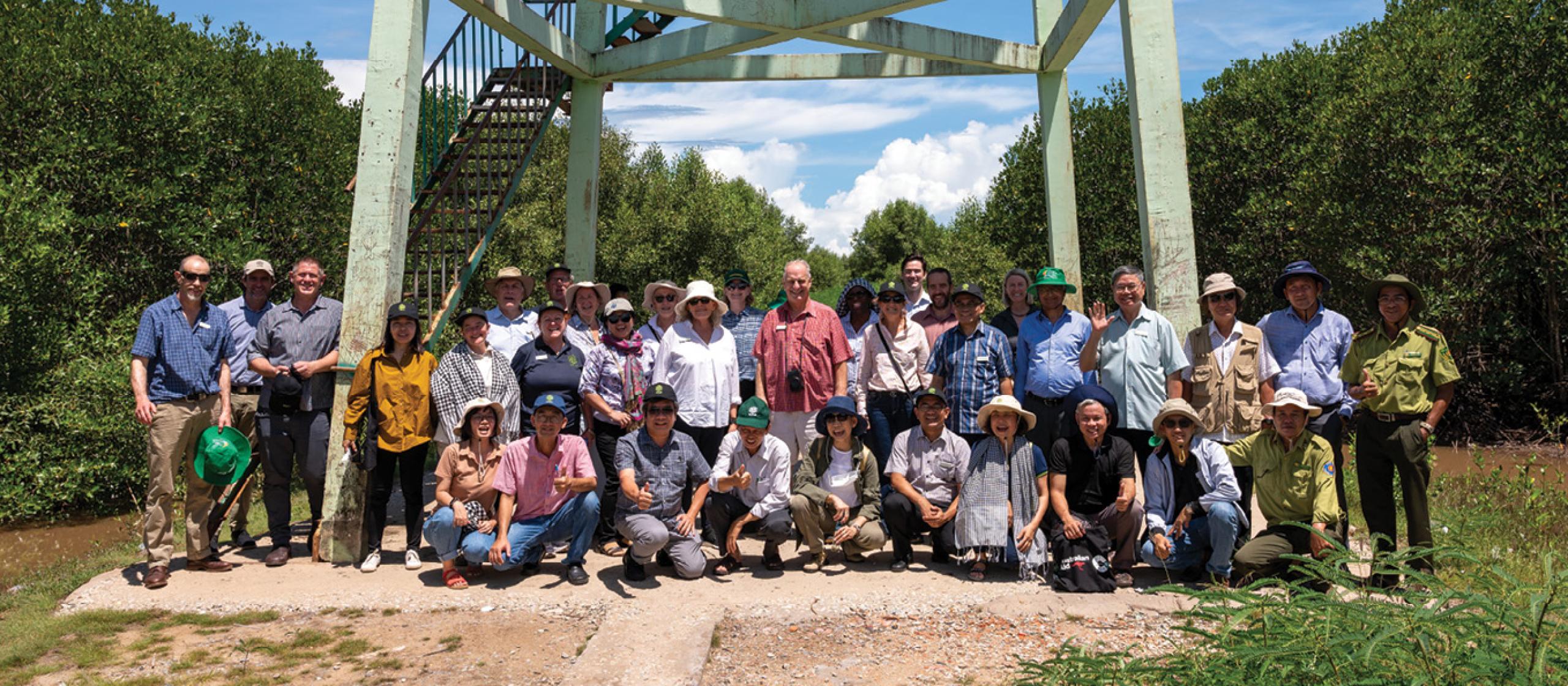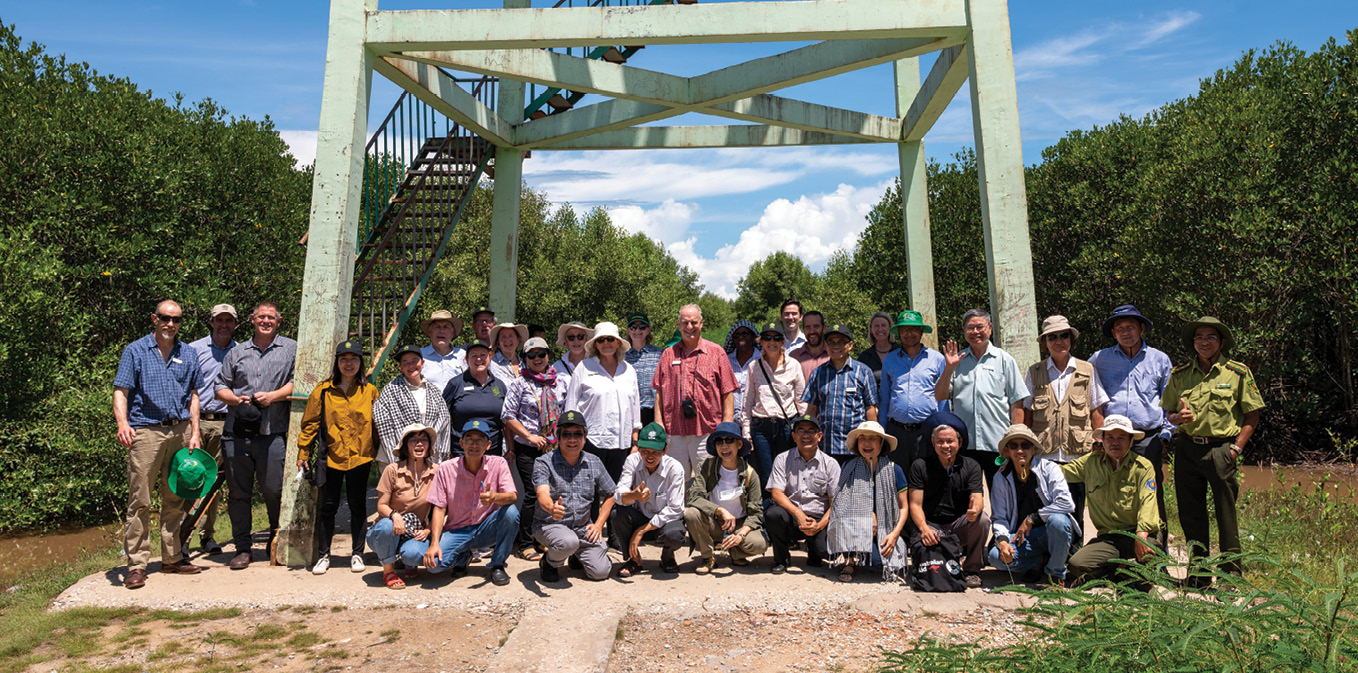The delegation saw first-hand the key challenges facing Vietnam’s agricultural development and gained in-person experience with some of the ongoing efforts of ACIAR and its Vietnamese partners to address these challenges.
Commission Chair Fiona Simson said it was an ‘amazing’ trip.
It was great for my first trip as a Commissioner to see some of the work that ACIAR has been doing in Vietnam, to see the results of some of that work, and to see some of the challenges and opportunities that our work is trying to address.
Fiona Simson
Chair Australia’s Commission for International Agricultural Research
On their week-long visit, the delegation visited Southern Horticultural Research Institute (SOFRI), rice research and development partners in the Mekong Delta, and greenhouses where Can Tho University researchers are experimenting with alternative crops on saline land.
‘For me, the highlight of the trip was being able to meet and talk to farmers: shrimp farmer Mr Tang Van Xua; mangrove farmer in the Mekong Delta Mr Tran Nghia Sy; and vegetable farmers in Hanoi Mrs Nguyen Thi Luyen and Mr Nguyen Van Duyen. We were able to talk with the vegetable growers about their farms and their cooperative and see their vegetables in the markets.
‘Those were the things that really made the trip come alive for me.’





